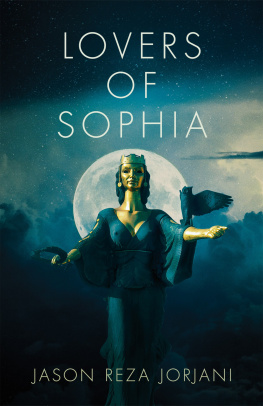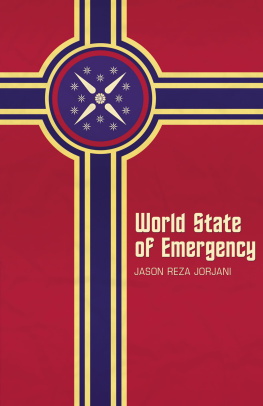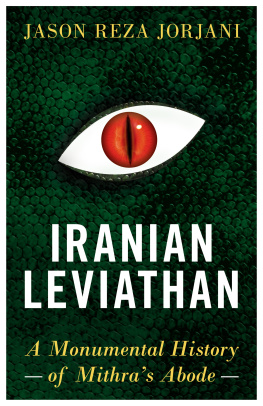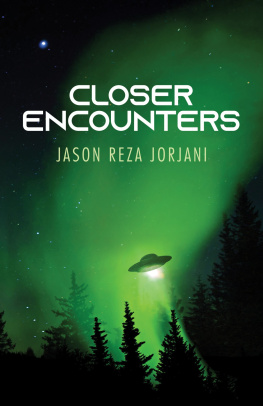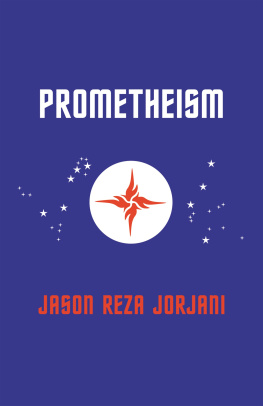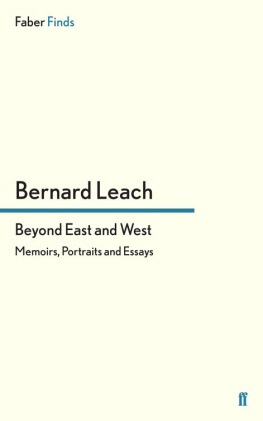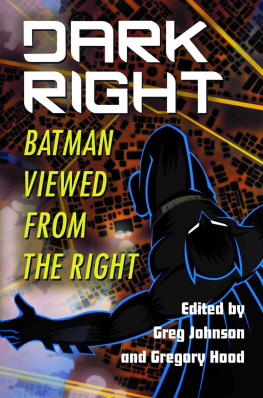Jason Reza Jorjani - Lovers of Sophia
Here you can read online Jason Reza Jorjani - Lovers of Sophia full text of the book (entire story) in english for free. Download pdf and epub, get meaning, cover and reviews about this ebook. year: 2019, publisher: Arktos Media Ltd., genre: Science. Description of the work, (preface) as well as reviews are available. Best literature library LitArk.com created for fans of good reading and offers a wide selection of genres:
Romance novel
Science fiction
Adventure
Detective
Science
History
Home and family
Prose
Art
Politics
Computer
Non-fiction
Religion
Business
Children
Humor
Choose a favorite category and find really read worthwhile books. Enjoy immersion in the world of imagination, feel the emotions of the characters or learn something new for yourself, make an fascinating discovery.
- Book:Lovers of Sophia
- Author:
- Publisher:Arktos Media Ltd.
- Genre:
- Year:2019
- Rating:3 / 5
- Favourites:Add to favourites
- Your mark:
- 60
- 1
- 2
- 3
- 4
- 5
Lovers of Sophia: summary, description and annotation
We offer to read an annotation, description, summary or preface (depends on what the author of the book "Lovers of Sophia" wrote himself). If you haven't found the necessary information about the book — write in the comments, we will try to find it.
Lovers of Sophia — read online for free the complete book (whole text) full work
Below is the text of the book, divided by pages. System saving the place of the last page read, allows you to conveniently read the book "Lovers of Sophia" online for free, without having to search again every time where you left off. Put a bookmark, and you can go to the page where you finished reading at any time.
Font size:
Interval:
Bookmark:
Arktos
London 2019

Copyright 2019 by Arktos Media Ltd.
All rights reserved. No part of this book may be reproduced or utilised in any form or by any means (whether electronic or mechanical), including photocopying, recording or by any information storage and retrieval system, without permission in writing from the publisher.
Arktos.com | Facebook | Twitter | Instagram | Gab.ai | Minds.com | YouTube
ISBN
978-1-912975-47-1 (Softcover)
978-1-912975-48-8 (Hardback)
978-1-912975-49-5 (Ebook)
Cover and Layout
Tor Westman
Nothing is true; everything is permitted.
Hassan Sabbah , Medieval Iran
Hassan Sabbah is the only spiritual teacher
with anything to say in the Space Age.
William Burroughs , Postmodern America
This book is dedicated to my best student,
my dear friend, and fellow Assassin,
Selwyn Griffith.
This mammoth volume is a collection of twenty distinct philosophical reflections written over the course of a decade. Most of them are essays, some almost of book length. Others would be better described as papers. A few are well-structured notes. There is also one lecture. A magnum opus like Prometheus and Atlas does not emerge from out of a vacuum, and an alternative title to these collected works could have been The Path to Prometheus and Atlas . While there are a few pieces that postdate not only that book but also World State of Emergency , most of the texts included here represent the formative phase of my thought. Consequently, concepts such as the spectral revolution and mercurial hermeneutics are originally developed in these essays.
In addition to revealing the context for the genesis of specific concepts that I have developed, these reflections also have certain stylistic features and central concerns that, when taken together with my two published books, make it possible to discern the key characteristics of my philosophical standpoint. For example, I reject any subdivision of Philosophy into distinct and specialized fields such as Ontology, Epistemology, Aesthetics, Ethics, and Politics. The main reason that I have included An Introductory Lecture on Ethics is because it exemplifies my integral conception of what it means to philosophize. From the essay Philosophy, Science, and Art, it becomes clear that beyond a rejection of specialization within Philosophy, I go so far as to argue against any fundamental differentiation of Philosophy from the arts and sciences. It is my contention that philosophers (such as Aristotle and Descartes) determine the deep structure of successive scientific paradigms, at least at their inception, and that philosophical thought can take place in an artistic and literary medium. This is why several of the pieces here are interpretations of literary or cinematic works, such as The Trial of Franz Kafka, or two films based on the writings of Philip K. Dick. In my view, aesthetic intuition is a necessary (but not a sufficient) condition for being a philosopher.
While on the subject of what it means to be a philosopher, let me point out that it is only with the publication of these essays that I reconcile myself to making the claim that I am one. Thus far I have described myself only as an aspiring philosopher. In addition to the aforementioned Introductory Lecture on Ethics and reflection on the relationship between Philosophy, Science, and Art, my diatribe Against Perennial Philosophy makes it quite clear that I do not recognize the majority of academics in the field of Philosophy as philosophers even though they disrespect the great thinkers of the past by referring to themselves as that. Against Perennial Philosophy actually disqualifies the majority of so-called philosophers in the Canon as well, and it suggests that there has hardly been any philosophy worthy of the name outside of the Indo-European civilizations (including the Aryan heritage of Buddhist Asia).
A philosopher is someone whose thought engages with fundamental questions concerning Truth, Beauty, and Justice, in a way that leads to the discovery of concepts with a potential to catalyze scientific and political revolutions. The philosophers ethics and politics must be grounded on his ontology and epistemology, and, as I have already suggested, this integral thought has to be guided by an aesthetic intuition comparable to that of the most extraordinary geniuses in literature and the arts. This is a definition that disqualifies scientists as innovative as Khayyam, Galileo, and Newton, political theorists like Cicero, Rousseau, and Strauss, or artists such as Ferdowsi, Dostoyevsky, and Kubrick. That I reflect philosophically on the brilliant works of Franz Kafka and Philip K. Dick, does not mean that I consider them philosophers. On this definition, there are probably not many more than two dozen philosophers known to recorded history. On account of the development of at least four original concepts thus far, namely the spectral revolution and mercurial hermeneutics in Prometheus and Atlas , the concept of a world state of emergency in the book by that name, and the terrifying idea of a destructive departure in worldview warfare from the essay Black Sunrise that appears in this volume, I now see myself as (just barely) having joined the ranks of these fellow lovers of Sophia.
The backbone of this collection is constituted of critical, and in some cases iconoclastic, contemplation of the work of my predecessors in the Canon: Plato, Aristotle, Spinoza, Kant, Hegel, Nietzsche, James, and Wittgenstein. The interpretation of Plato ventured in The Pharmakon Artist and that of Aristotle in Building the Theater of Being are totally original and extremely destabilizing to received tradition. The essay on Hegels Paranormal Phenomenology, which also adopts and adapts certain ideas from Maurice Merleau-Ponty, is the point of origin for the concept of mercurial hermeneutics further developed in Prometheus and Atlas .
However, it is by no means the case that these philosophical reflections are limited to the Western Canon. Rather, one of the distinguishing characteristics of Prometheus and Atlas as well as World State of Emergency is the cosmopolitan scope of my thought. My Critique of Shiite Esotericism and exegesis of Verse 4:34 from the Quran , are incisive philosophical critiques of Islam. They were instrumental scholarly exercises on the way to the anti-Islamic argument of World State of Emergency . Essays like Serpent Power of the Superman, where I argue that Hindu Tantra is more Nietzschean than Nietzsche, reaffirm that I recognize no distinction between Western and Eastern philosophy. Although most of what could be called philosophical thought in the East is Indo-European or Aryan in origin, my Notes on the Tao of Bruce Lee suggest that Aryan traditions like Buddhism can be augmented by assimilating elements of non-Aryan traditions such as Taoism. As I argued in both Prometheus and Atlas and World State of Emergency , I see this innovatively evolving cosmopolitan humanism as one of the most distinctive qualities of the Indo-European community. Bruce Lee is Aryan, not Chineseand I say that mainly on account of the form of his thought, rather than his partly German genetic inheritance or his upbringing in the British colonial culture of Hong Kong.
By the way, as Trial Goddess strongly suggests, I also consider Franz Kafka to be an Aryan. Fragmentary as his writings may be, in my view Kafka is the peak of German literatureor rather the cathedral gloom of its most horrifyingly abyssal depth. How integral Jews have been to defining the most Aryan of attitudes and ideas in the Western Canon is also clear from the overwhelming influence of Baruch Spinoza on the development of the core structure of Nietzsches thought, which I trace in the essay, Spinoza, the Untimely One. Nietzsche, the progenitor of the Aryan Superman, himself recognized the Jews as a world-historical community who, as compared to their small numbers, have demonstrated an incomparable genius in every field of human endeavor, producing some of the most brilliant philosophers, scientists, artists, and mystics.
Next pageFont size:
Interval:
Bookmark:
Similar books «Lovers of Sophia»
Look at similar books to Lovers of Sophia. We have selected literature similar in name and meaning in the hope of providing readers with more options to find new, interesting, not yet read works.
Discussion, reviews of the book Lovers of Sophia and just readers' own opinions. Leave your comments, write what you think about the work, its meaning or the main characters. Specify what exactly you liked and what you didn't like, and why you think so.

